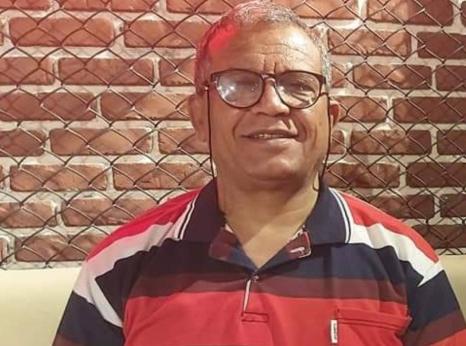Egypt: Unjustly Held Yemeni At Risk Of Deportation

Abdul-Baqi Saeed Abdo fled Yemen in August 2014 for Egypt, where he registered with the United Nations High Commissioner for Refugees (UNHCR). After he announced his conversion to Christianity on his social media platforms in 2013, he and his family who lived in a rural area outside Taiz, were subjected to a wave of violent attacks. Members of his family told Amnesty International that he was fired from his job, his car was damaged, and that in June 2014, his home was set on fire and his wife passed away as a result of this attack. In August 2014 he fled Yemen to Egypt with his four children.
On 23 June 2022, Egyptian human rights group, the Egyptian Initiative for Personal Rights (EIPR), warned of Abul-Baqi Saeed Abdo’s imminent deportation and called on the Egyptian authorities to stop his forced return and drop the charges against him. On 30 June 2022, the UN Working Group on Arbitrary Detention; the Working Group on Enforced or Involuntary Disappearances; the Special Rapporteur on extrajudicial, summary or arbitrary executions; the Special Rapporteur on the promotion and protection of the right to freedom of opinion and expression; the Special Rapporteur on the human rights of migrants; the Special Rapporteur on minority issues and the Special Rapporteur on freedom of religion or belief sent a letter to the Egyptian authorities highlighting the arbitrary detention, enforced disappearance and unjust prosecution of Abdul-Baqi Saeed Abdo.
Religious minorities living in Egypt, including Christians, face entrenched discrimination in law and practice. The authorities have failed to protect Christians from repeated sectarian attacks and violence by armed groups targeting their communities since 2013 and to bring those responsible of using violence to justice in fair trials. Authorities also failed to protect Christians from attacks by armed groups in North Sinai or secure the safe return of hundreds of Christians who were forcibly displaced from North Sinai following violent attacks in 2017 or provide them with any compensation for lost property and livelihoods. Members of religious minorities and Muslims not espousing state-sanctioned religious beliefs have been subjected to arbitrary detention, prosecution and unjust imprisonment for "defamation of religion" and other bogus charges, while others are targeted simply for practicing their faith or defending the rights of religious minorities.
Egypt is party to both the UN Convention Relating to the Status of Refugees and the Organization of African Unity (OAU) Refugee Convention; both require Egypt to provide international protection to refugees and to respect the principle of non-refoulement. According to a 1954 Memorandum of Understanding between Egypt and UNHCR, registration and refugee status determination in the country is delegated to UNHCR, while the Egyptian authorities are obliged to allow asylum seekers to meet with UNHCR representatives and to respect UNHCR’s assessments of their refugee status. Egyptian media reported on June 2023 that the authorities are seeking to expedite the adoption of a new asylum law. While the draft law has yet to be made public, reports indicate that under the proposal, all asylum seekers and refugees in the country would be required to register with the authorities and regularize their status within six months of the law’s executive regulations coming into force.
Egypt has an obligation not to return individuals to a situation where they would be at risk of persecution, torture or other serious human rights violations, including arbitrary deprivation of life. The principle of non-refoulement is recognized as a norm of customary international law and is enshrined in international instruments, including the UN Convention against Torture and Other Cruel, Inhuman or Degrading Treatment or Punishment, to which Egypt is a state party.